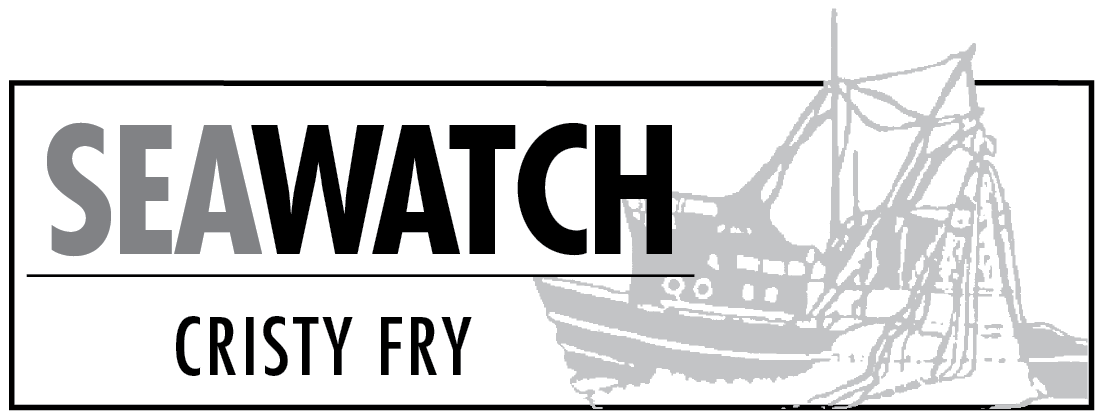The on-going impasse in Washington, D.C., that has resulted in hundreds of thousands of federal workers being furloughed is imperiling the Bering Sea king crab fishery and the profits it may generate for fishermen. The fishery is slated to open Oct. 15.
While the Alaska Department of Fish and Game sets the quotas and manages the fishery in-season, the National Marine Fisheries Service, a branch of NOAA, regulates the IFQ process, which determines how many pounds individual fishermen can catch in a given year, handles permits to lease quota between boats, and determines which processors get what share of the quota.
The NMFS employees who handle that process are currently off the job, which means that fishermen have no way of knowing how many pounds they’re allowed or of getting the permits needed to splash pots.
ADF&G has released the quotas for red king crab, which is 8.6 million pounds, up about 9.5 percent from last season, and Bairdi tanner crab, which has been closed since 2010, at 3.1 million pounds.
Vessel and IFQ owner and fisherman Ian Pitzman of Homer said that until the situation in Washington is resolved, there is no way to execute the fishery.
“If the NOAA folks don’t get to work by Wednesday or Friday figuring out, calculating the IFQs, the fishery will be delayed.
“The government can’t go back to work on the 15th and we go fishing the next morning. They have to issue the quota in a three- to five-day process,” Pitzman said.
Several reports have said that even a one-week delay in the season could have serious consequences for the Japanese red king crab market, which is where a majority of the Alaskan crab are sold.
Pitzman confirmed that.
“That’s the reason everyone goes king crab fishing right at the beginning. You have about three weeks to catch your crab, so let’s say by Nov. 7 all the crab needs to be in and delivered at that point to hit that market overseas for the New Year’s celebrations,” he said. “If you don’t hit that market, it doesn’t put that upward pressure on the price.”
Another major concern is the cost of keeping boats idling in port.
“The longer the boats stay tied up, crew on board, standing by, in Dutch Harbor, expenses go up dramatically,” he said.
The government shutdown does not seem to be affecting halibut and sablefish deliveries, the other major IFQ fisheries in Alaska.
The season is winding down, with only 13 percent of the halibut quota left statewide and 10 percent in Area 3A, which includes Homer, and 17 percent of sablefish, but the NOAA website that details pending landings and catch reports is being updated regularly, in spite of a notice on the home page that indicates other possibilities.
“Due to the Federal Government shutdown, NOAA.gov and most associated web sites are unavailable,” it reads. “This site will remain accessible during the federal government shutdown. However, information on the site may not be up to date, and we may not be able to respond to inquiries until appropriations are enacted.”
Kevin Hogan, owner of the Auction Block in Homer which buys both species, said that things seem to be operating normally.
“The NMFS (enforcement) officers are still on the docks, the data clerks are still operating, landings still are happening,” he said.
Things are not so smooth in other aspects of the federal IFQ regulatory system, according to Doug Bowen, owner of Alaska Boats and Permits.
Bowen said that much like the problems with the crab fishery, transfers of halibut and sablefish quotas are at a standstill, and are impacting small boat fishermen across the state.
“As you can imagine, we have folks that are trying to buy shares that haven’t been fished yet, and they’re hung up, and people are still in the process of trying to do medical transfers, hired skipper transfers, all kinds of stuff, and it’s at a full stop,” Bowen said.
He noted that others have pointed out to him that management of the halibut and sablefish IFQ fishery is funded by fishermen through a tax on landings of that product, and those funds should keep the bureaucracy moving.
“Aren’t we paying those IFQ fees every December for the administration and enforcement of the IFQ program?” he asked. “Apparently they didn’t get the word down in Juneau.”
The person at the NOAA office in Juneau who could answer questions about that issue is unavailable due to the shutdown.
Bowen said he contacted someone in enforcement, which appears to be one of the few branches of NOAA still operating in Juneau, and that person walked across the street to try to locate someone in administration, but there was no one to talk to.
“The doors were locked, the lights were off,” Bowen said.
Bowen also questioned how quickly things would start happening for fishermen waiting for their permits when the government did get back up and running, especially with the crab permits hanging out there.
“What are they going to do?” he asked. “Is it first in, first out? What are their priorities? Is it the date that they were stamped when the stuff comes in, if it’s a transfer? Or is it just going to be a triage situation because they’ve got to get those crab permits out, and everybody else can take a back seat?”
Bowen said that while it is somewhat fortunate, given the circumstances, that there have been relatively few permit transfer requests because of lower quotas and prices, it is impacting fishermen still trying to make transfers and fish quota for the 2013 season, which ends relatively early, on Nov. 7.
“On a busy year, there would be a lot of last-minute, 12th hour kind of stuff going on, and fortunately we don’t have that,” he said.
Cristy Fry has commercial fished out of Homer and King Cove since 1978. She can be reached at realist468@gmail.com.


